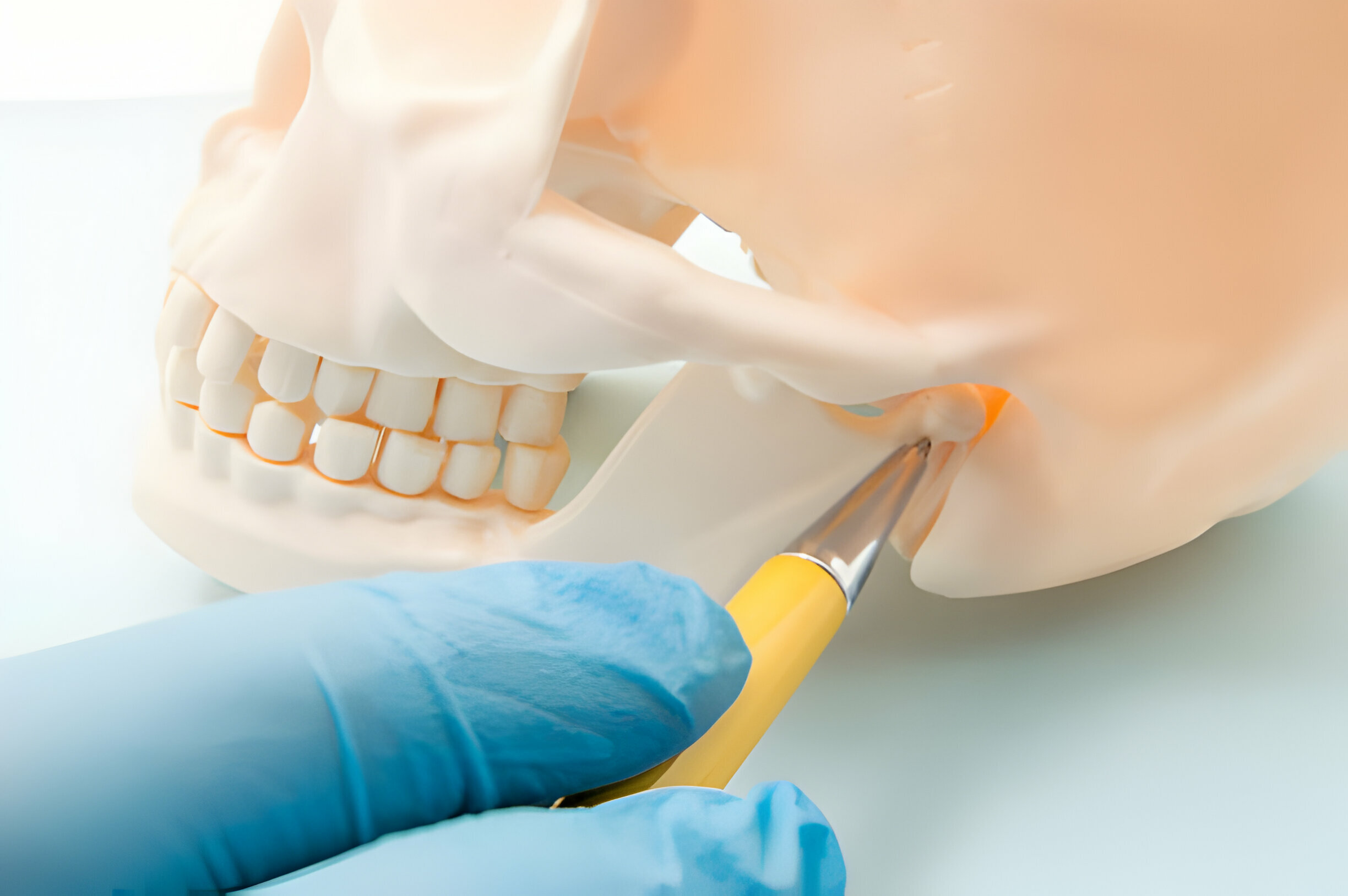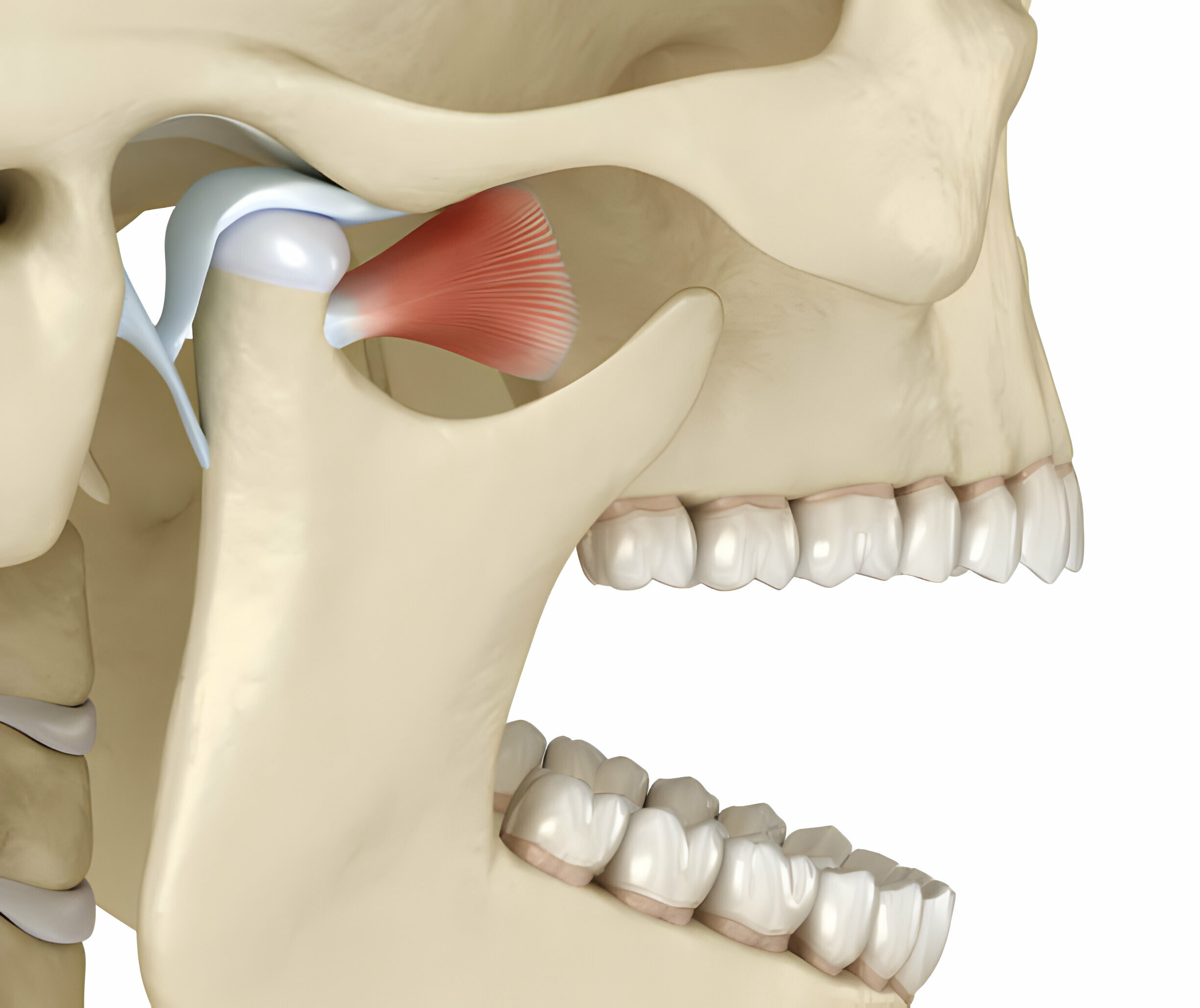Summary:
Do you often feel stiffness and pain in your jaw every time you move it?
It is a great indicator of a TMJ disorder, which causes pain and tenderness in your jaws, surrounding muscles, and ligaments. You may often feel this pain if you have TMJ, which is usually caused by jawbone injuries, arthritis, and teeth grinding.

If you frequently experience pain in the temporomandibular joint (TMJ), a dentist in Bloomfield can help you smile effortlessly again. However, most people visiting our clinic have little to no idea about TMJ disorders or the procedures to relieve pain and restore jaw movements.
Keeping this in mind, we have listed crucial details in this blog that involve discussion on topics like:
- An Overview Of Temporomandibular Joint Disorder – What is it About?
- Understanding The Various Types Of TMJ Disorders
- Treatment Solutions For TMJ Disorder – Everything You Need To Know
- Is Temporomandibular Joint Disorder Curable?
Continue reading as we learn about TMJ disorders and their treatment plans in the following solutions.
An Overview Of Temporomandibular Joint Disorder – What is it About?
Do you know that around 5% to 12% of people worldwide have TMJ disorder? They display symptoms like bruxism, headache, jaw ache, decreased hearing ability, and other jaw abnormalities.
TMJ (Temporomandibular Joint) is a critical joint that connects your jawbone to your skull. It is a condition that affects the joints and muscles responsible for jaw movement. The common symptoms of TMJ dysfunction include clicking or popping sounds when chewing or opening the mouth, jaw pain, difficulty opening the mouth fully, and occasional headaches or earaches.
TMJ disorder can be caused by many problems, such as jaw injuries, teeth grinding (bruxism), or stress-induced jawbone clenching. Seeking guidance from expert dentists can effectively manage your jawbone disorder and improve your quality of life.
Understanding The Various Types Of TMJ Disorders
TMJ disorder is painful and uncomfortable, affecting one’s ability to move one’s jaw freely. Recognizing the different types of temporomandibular joint disorders allows one to facilitate accurate diagnosis and effective treatment.
Here are the various kinds of jaw joint disorders you should know about:
Myofascial Pain Syndrome
Myofascial pain syndrome involves discomfort or pain in the muscles responsible for jaw movement. Individuals with this condition may experience muscle tenderness, difficulty chewing, and pain that radiates to the face, neck, or shoulders.
Degenerative Joint Disease (Osteoarthritis)
With time, TMJ disorder can lead to degenerative changes similar to osteoarthritis in other joints. Under this condition, you may experience joint stiffness, pain, swelling, and decreased mobility. Factors such as aging, joint overuse, or previous trauma can contribute to the development of osteoarthritis in the jaw.

Rheumatoid Arthritis
Rheumatoid arthritis is an autoimmune disease affecting multiple joints, including the TMJ. Inflammation of the jawbone area can lead to pain, swelling, and eventually joint damage. Individuals with rheumatoid arthritis may also experience systemic temporomandibular symptoms such as fatigue, fever, and weight loss.
Ankylosis
Ankylosis is a severe TMJ disorder that causes the fusion of the joint components, leading to limited or complete loss of jaw movement. It can result from trauma, infection, or abnormal bone growth within the joint, impairing oral functions.
Bruxism
While not a direct TMJ disorder, bruxism refers to the habitual grinding or clenching of teeth, often during sleep. Chronic bruxism can exert excessive pressure on the TMJ, leading to muscle tension, joint pain, and accelerated wear of the joint surfaces.
Treatment Solutions For TMJ Disorders – Everything You Need To Know
Effective management of TMJ disorders typically involves a comprehensive approach tailored to the individual’s specific TMJ syndrome symptoms and underlying causes.
Here are various treatment solutions to address TMJ disorders and improve quality of life:
Self-care Practices
Patients should adopt self-care practices to manage TMJ disorders. Simple techniques such as applying moist heat or cold packs to the affected area can help alleviate pain and reduce inflammation. Gentle jaw stretching exercises and good posture can help improve jawbone mobility and relieve muscle tension.
Medications
Over-the-counter pain relievers such as ibuprofen or acetaminophen can be effective in managing pain and inflammation for temporomandibular joint disorders. TMJ in dentists prescribe muscle relaxants for individuals who experience muscle spasms or tension to alleviate symptoms. In some cases, we also recommend anti-anxiety medications to reduce stress-related jaw clenching and muscle tension.
Dental Treatments
Dental interventions are crucial in managing temporomandibular joint disorders, particularly when you experience bruxism or bite misalignment. Custom-fitted mouth guards or oral splints can help protect your teeth and jaw joints. Professionals may also recommend orthodontic TMJ dysfunction treatments to address bite problems and correct jaw misalignment.

Injections
Some TMJ treatment dentists may recommend corticosteroid injections directly into the jaw to temporarily relieve pain and inflammation. These injections can help reduce swelling and improve jawbone function, particularly in individuals with severe or persistent temporomandibular joint symptoms who do not respond well to other treatments.
Surgical Interventions
Surgical interventions are the last thing we consider for treating TMJ disorders. It may be necessary when conservative TMD therapy has failed to provide relief or cure your temporomandibular joint disorder. Some effective surgical options include flushing the joint minimally invasively or using open joint surgery to repair or replace damaged structures.
Is Temporomandibular Joint Disorder Curable?
Complete prevention or cure of jaw disorder is not always possible, but proactive measures can significantly reduce its severity and occurrences. Early detection of temporomandibular joint disorder and professional intervention paired with lifestyle changes can help manage jawbone disorder symptoms.
Here are some tips to manage your TMJ disorder symptoms:
-
Awareness And Self-Care
Educating yourself about risk factors and adhering to good oral habits can substantially decrease the likelihood of developing TMJ disorder. To reduce disorder symptoms, dentist TMJ suggests avoiding teeth grinding or clenching, maintaining good posture, and managing stress.
-
Oral Health Maintenance
Regular dental check-ups at our clinic help detect potential temporomandibular joint disorder indicators early. Our dentists offer guidance on proper dental hygiene and may suggest specific exercises to strengthen jaw muscles.
-
Avoid Excessive Jaw Stress
Chewing on complex objects (e.g., ice, pens) and excessive gum chewing can strain the jawbone joint. Limiting such activities can help reduce the risk of TMJ disorder.
While many individuals experience considerable symptom improvement with appropriate treatment of TMJ, complete resolution of the disorder may not always be possible.
Treatment success depends on various factors, including the underlying cause, individual health conditions, and adherence to treatment plans.
Takeaway
- The symptoms of TMJ disorder include jaw pain, tenderness, bruxism, headache, and difficulty in chewing.
- Many factors, including teeth grinding, stress, and jaw injuries, can cause it.
- Sometimes, temporomandibular joint disorder may lead to degenerative joint disease, further decreasing jaw mobility.
- Muscle relaxants, mouth guards, and oral splints may alleviate stress-related jaw disorder symptoms.
- Although an absolute cure for jaw disorder is not always possible, physical exercise, dental treatments, and avoiding jaw stress can improve its symptoms.
- Don’t ignore the problems in your jaw; connect with our professional TMJ experts at Sundance Smiles to get the ideal treatment today.

